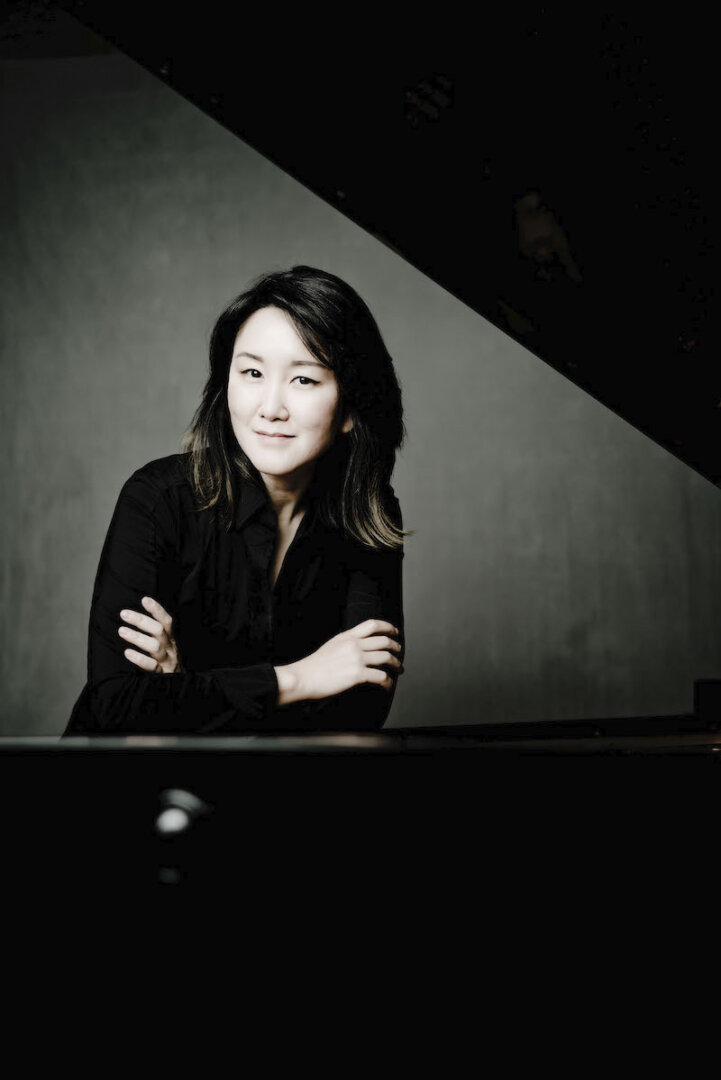World-famous pianist joins the foreign guests of Cziffra Festival: Klara Min will make her debut with a recital on the 14th February at the Liszt Academy. The artist, known as a Schumann-specialist, was asked about Hungarian music life, Georges Cziffra and the concert programme among others.
– You are a returning guest to our country as a private person. How do you see music life here?
– I am very happy to come back to Hungary, this time for a performance. I find that in Hungary classical music is greatly respected coming from the country’s rich musical history. There are so many great Hungarian musicians not only as performers but also as very influential mentors in the current music world. Perhaps it is the Humanitarian spirit of Liszt that lets the country both adhere to the tradition at the same time open-hearted to other cultures.
– You will perform for the first time at Cziffra Festival. How did you get the invitation?
– The festival director, Balázs János, kindly invited me. We met at backstage of Martha Argerich’s concert with Gabor Takacs-Nagy a few years ago in Budapest.
– What does Cziffra’s oeuvre mean to you?
– Life, when he was alive, was a lot more difficult than now because of World War. Cziffra had a very difficult early life going through the period, was imprisoned twice, and suffered from severe poverty. People seem to have had a lot more endurance for what life demanded then. In the midst of turmoil, music was always a part of his life. He never gave up and kept going and triumphed in his later life not only by performing extensively but also by helping the next generation of musicians.
Some people wait for life to happen and react. Others manifest without succumbing to the circumstances. Cziffra is the latter and a true hero to his own life, and to his music that reflects his life, one can find the true musician’s spirit.

– Supporting young musicians is as important for Cziffra Festival as for New York Concert Artists & Associates you have founded. What are the main pillars of this organization?
– NYCA’s mission is to help the next generation of musicians by connecting them to the world. We provide platform such as concerts, festivals, academies, recordings, auditions, sponsor arrangements so that the young musicians would find their own unique ways to further their musical life. It is important to acknowledge the whole picture as a musician, not just the playing itself.
Your performance is a reflection of who you are, and who you are is not made only in the practice room. Music never stands alone without life.
– At Budapest you will play two pieces from Schumann: Fantasy in C major and Piano Sonata in F sharp minor. Why did you choose these ones?
– Schumann is one of the composers whose music is dear to me. I feel very close to his music at heart. Fantasy is a very new piece for me. I have been reluctant to play this piece for a long time as I didn’t feel connected. Now I am very much into this piece and feel that it is the right time of my life to be with this piece. It’s one of the incredible and representative pieces of the romantic era and it demands a lot of subjective translation by performers. A lot of his compositions show inner struggles in-depth and I feel quite connected to them.
– Besides Schumann which composers do you concerned about nowadays?
– I have recordings for Chopin concertos this year. He was my first love when I ever started playing piano but I find his music very difficult compared to how I felt about it in my youthful years. The reason is probably the most natural flow, spontaneity, sensitivity, and transparency that his music is asking for somehow work more naturally with a youthful spirit.
As we grow, we tend to think much, reason, analyze so at times such spontaneity is prone to get lost.
Ironically you can also find a lot of incredible recordings of Chopin by the late legendary pianists when they were at old age. I feel that my life hit a certain transition to search for such spontaneity that comes from freedom therefore being with his music at this time of my life is especially meaningful.
I also learned a lot from Scriabin. He changed the way I listened. It was another dimension for me and I’d like to go back to Scriabin a bit later.
– What are your experience about the recent period?
– It’s been very difficult two years since the pandemic, and coming back to the stage took courage, but I missed the connection with real people, not virtual ones. A ’good life’ for me involves music and connecting with another human being.











